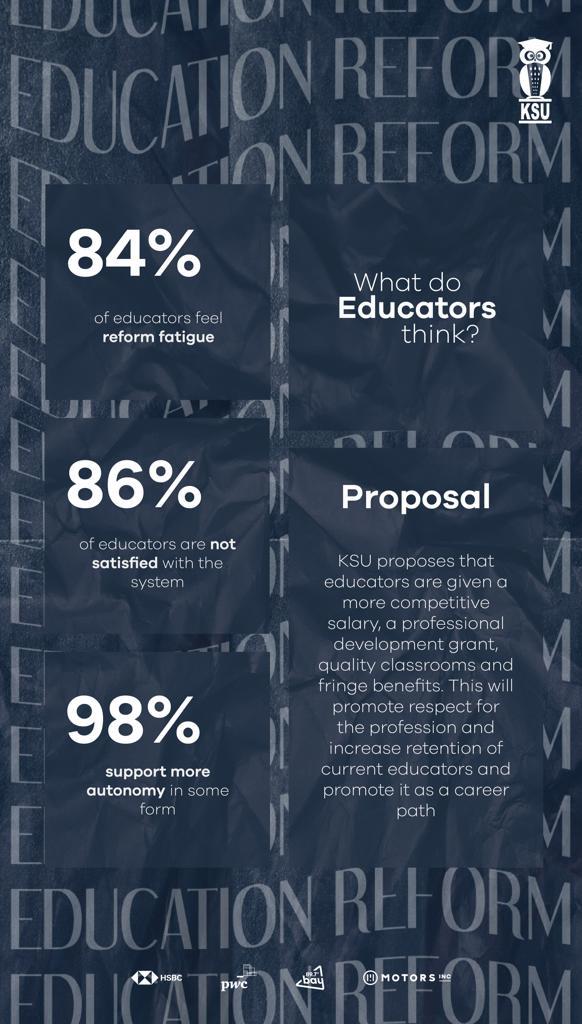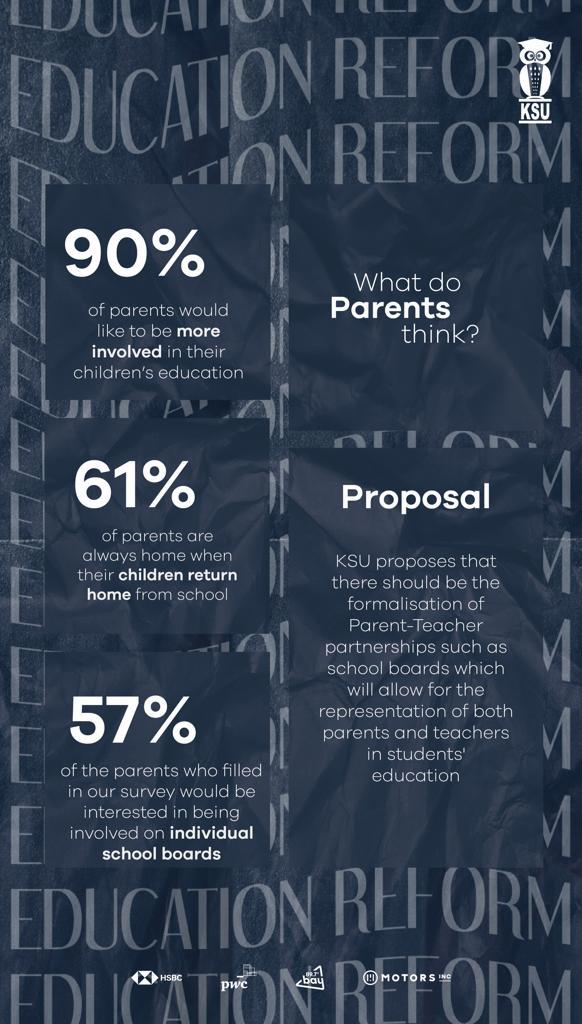The University Students' Council (KSU) has finalised the policy paper on education and issued a number of proposals.
The policy paper was finalised after compiling the data it gathered through the KSU survey that was shared on social media and filled in by 664 people.
"Education is the nurture aspect in people's development. What and how we learn in school is what makes us think the way we do. It is the time in our life when our sole purpose is to learn and develop. Unfortunately, the current system leaves a lot to be desired and its consequences can be felt across the board. As KSU we felt that it is our duty to advocate for a different system, a better system. A system that stays away from the idea that that the beginning and end of education are exams. Where we are taught by educators, not teachers. Where we don't learn subjects, but areas of study. We need to be taught in a holistic manner that equips us with the values and tools to learn, not just more, but better. An education system that instils values of critical thinking, the sense of civic duty, and that promotes the values of inclusion, unity and a care for the common good," Jeremy Mifsud, the KSU's Social Policy Officer said.
"KSU is proposing that students are offered a flexible approach to education, which will allow students with various interests, learning patterns and capabilities, to have a holistic learning experience which stays away from a one-size-fits all way of learning and progressing, but creates quality graduates with multiple skills which fall into soft, and even vocational nature. This will hopefully counteract the very worrying statistic where only 5% of students feel that the Maltese education system prepares them for everyday life," Mifsud said.
The essence of the proposals in the policy paper are three-fold: Autonomy; Collegiality; and Inclusion, a KSU statement read.

The policy document reads that 86% of students believe that courses which don't usually form part of the traditional syllabus such as coding, agribusiness and financial literacy should be taught as part of the school curriculum.
KSU is proposing that educational institutions are given autonomy to focus on the needs of their school, and more specifically for educators to focus on the needs of their classrooms.
"This gives educators the possibility to prioritise material that lines up with the schools ethos in a way that follows Malta's education vision, but adapts to the particular circumstances of every school. Here, we are not asking for complete freedom, but a system which gives autonomy and trust to our educators with regular checks being made in order to confirm that the content and quality of teaching is up to standard," A KSU statement read.
Within this same system of autonomy, there would exist the system of collegiality which would occur between educators of the same area of study, the KSU said, "where in an ideal world the educators of an area of study in a grade would share information, resources, promote cooperation and uniformity. This would then extend less frequently between one year and the next, then to the level of school - so junior school, middle school and high school - to ensure that there is uniformity and continuity throughout a student's whole educational experience."

KSU strongly believes in a stronger collaboration between parents and teachers through Parent-Teacher Partnerships, such as school boards which would allow higher parental involvement and trust placed in educators and the institutions.
"This collegiality will foster a sense of inclusion both in the decision making process, as well as on the ground, in schools, allowing for a deeper and more comprehensive system that tailors to as many different demographics, minorities and excluded members of the education system."
"Educators are the alpha and omega of the education system," the KSU said. It proposed that educators are given a more competitive salary, a professional development grant, quality classrooms and fringe benefits. "This will promote respect for the profession and increase retention of current educators and promote it as a career path."
The issues surrounding education in Malta are cultural, the KSU said, "which means that we need to change it not only through aesthetic changes, but in a cultural way. We feel that it is unfortunate that it took a student council to need to make this effort, but as has become our motto - if not us then who?"